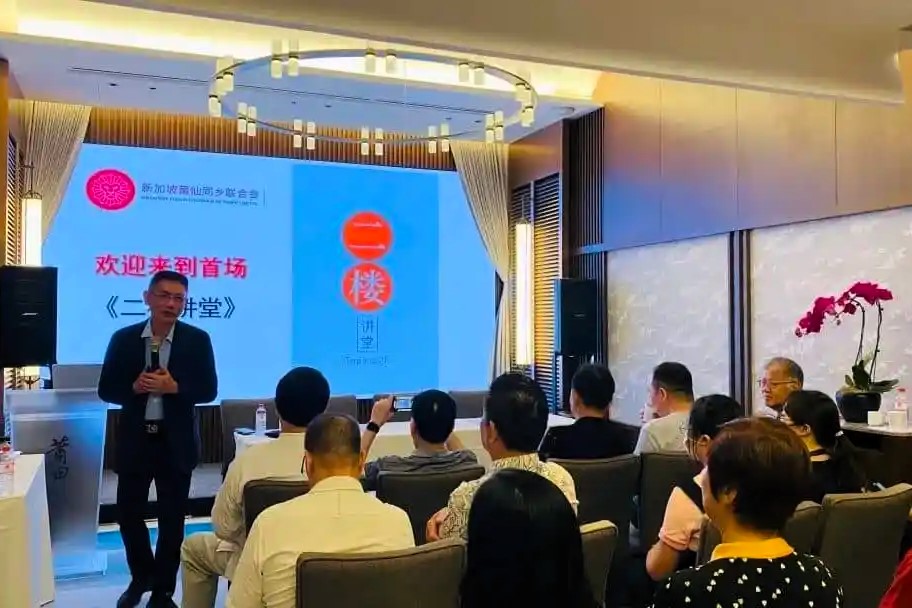Original Post - 12 Apr 2023
Singapore's newest knowledge exchange platform, the "Second Floor Lecture Hall," was officially launched on Sunday, April 9th. Dr. Wu Wei of the Nanyang Technological University, delivered the inaugural speech titled "The Impact of AI on Humanity: Friend or Foe?," marking the beginning of a series of exchange activities.

Dr. Wu Wei is also the Executive President of the Singapore Puxian (Hinghwa) Network. The "Second Floor Lecture Hall" is a lecture platform established by the Association with the aim of promoting meaningful knowledge sharing, facilitating member exchanges, and providing a unique and inspiring space for the wider community.

The Association will regularly invite influential experts and knowledgeable individuals from various industries to the "Second Floor Lecture Hall" located at 127 Kitchener Road, above the old store of the Putien Restaurant, to deliver a series of lectures on topics including technology, culture, business, environment, and humanities.


Dr. Wu Wei discussed the profound changes brought about by the Internet+ to traditional industries, completely rewriting business models. Regarding ChatGPT+, the combination of ChatGPT with various industries, powered by ChatGPT's powerful capabilities, this might create another tsunami. He described this trend as "breaking old habits and establishing new ones."
Dr. Wu Wei said that the market space for the content generated by artificial intelligence technology in the future is vast. The application opportunities of AI+ include media, e-commerce, film and television, entertainment, education, finance, healthcare, and industry, among many others.
Dr. Wu Wei emphasized that AI poses both threats and opportunities. The most pressing question for humanity is whether AI, which is becoming increasingly powerful, will be a blessing or a curse. Is it Pandora's box or a tool of civilization?
Dr. Wu Wei stated that human curiosity and concern coexist. Curiosity lies in how powerful AI can become and what difficult problems it can solve. Concerns revolve around the threat to jobs and livelihoods, as well as the fear that once artificial intelligence gains self-awareness (awakening), it will pose a devastating blow to the human species.



